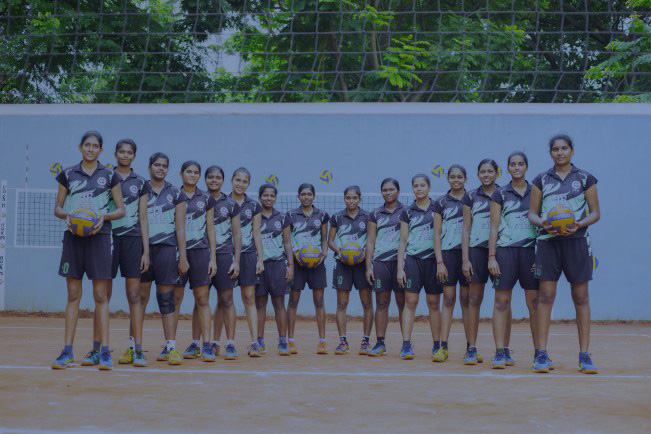Master of Public Health – MPH
- Home
- Medicine & Health Sciences
- SRM School of Public Health
- Master of Public Health – MPH
Campus
Kattankulathur (KTR)
Sanctioned Intake
40
Annual Fees
INR 2,25,000
Duration
2 Years
About the Program
Eligibility
Master of Public Health (MPH) is open to graduates from all streams with a minimum of 60% marks.
Medical doctors who are not inclined for clinical practice may find public health an exciting and rewarding career. Accordingly, candidates with degrees, such as MBBS, BDS, BAMS, BHMS, BSMS, or BUMS, BSc-Nursing and BSc-Nutrition are encouraged to pursue public health.
Career Path
MPH graduates generally begin their professional journey with mid-level positions such as program officer or research officer in a national or international NGO, CSR initiatives, research organization, or government health department. Progressing in their careers, they ascend to state-level manager, eventually reaching national-level management positions. Some specialize in specific areas like Monitoring, Learning and Evaluation, Research, Community Mobilization, Advocacy, TB, HIV/AIDS, Family Planning, Gender Equity, Environmental Health, Health Communication, Health Economics etc. Some students choose to pursue a Ph.D. and get into academia.
Higher Studies Opportunity
PhD in Public Health
Program Outcomes
Disciplinary Knowledge: Cultivate a strong foundation of core knowledge associated with the profession of Public Health, including Epidemiology, Biostatistics, Basic Demography and Health management
Critical Thinking: Demonstrate advanced critical thinking abilities for analyzing complex public health issues.
Problem Solving: Apply problem-solving techniques to address diverse public health challenges.
Analytical Reasoning: Exhibit exceptional analytical reasoning skills to interpret and evaluate health data effectively.
Research Skills: Being proficient in research methodologies to contribute to evidence-based public health practices.
Team Work: Collaborate seamlessly within interdisciplinary teams to devise comprehensive health solutions.
Scientific Reasoning: Apply scientific reasoning to inform decision-making and innovation in public health contexts
Reflective Thinking: Engage in reflective thinking to continuously enhance public health practices.
Self-Directed Learning: Exhibit a strong capacity for self-directed learning, adapting to evolving public health landscapes.
Multicultural Competence: Demonstrate multicultural competence in addressing health disparities across diverse populations.
Ethical Reasoning: Make ethical decisions in complex public health scenarios, prioritizing community well-being.
Community Engagement: Actively engage with communities to develop contextually relevant public health interventions.
ICT Skills: Utilize Information and Communication Technology (ICT) tools for effective healthcare initiatives.
Leadership Skills: Exemplify leadership skills, driving positive changes in public health policies and practices.
Lifelong Learning: Consistent knowledge updation to address emerging health challenges.
Pedagogy
Teaching-learning in all the postgraduate programs in predominantly participatory. Didactic lectures are minimal. Students are encouraged to learn the identified topics by reading textbooks. They make presentations of their learning. The faculty confirms whether or not their understanding is correct. The faculty contributes to learning by explaining background, rationale or logic of facts, by giving examples or by discussing ground realities. Students are required to carry out desk review of selected topics and submit report, which is evaluated by the faculty. The faculty provides individual feedback to the students.
For practical training, they are involved in ongoing projects of the school.
Summer Training: In second semester, the students design and conduct a research study of their interest and submit a dissertation report.
Internship: In the fourth semester, students go for internship. They get attached to national or international NGO, research organisations, pharmaceutical or biotechnology companies where they get involved in the day-to-day functions of the organisation. It is expected that the students create a place for themselves in these organisations. On completion of internship the students submit a report of their experience.
Mentor-mentee system: Each postgraduate student is attached to a mentor faculty, who guide them for summer training and internship and final placement.
how to apply
Step 1 - register
Sign up or Register for CET with basic details (Name, Email ID, Mobile No., State, Gender and Password). Your Email ID will act as your Username for the portal while the password will be set by you upon registration.
On successful registration, you will receive the confirmation message on your registered contact number and Email. Use the Username and Password to Login to your CET Account.
Step 2 - register
Nemo enim ipsam voluptatem quia voluptas sit aspernatur aut odit aut fugit, sed quia consequuntur magni dolores eos qui rationeNemo enim ipsam voluptatem quia voluptas sit aspernatur
On successful registration, you will receive the confirmation message on your registered contact number and Email. Use the Username and Password to Login to your CET Account.
Step 3 - register
Sign up or Register for CET with basic details (Name, Email ID, Mobile No., State, Gender and Password). Your Email ID will act as your Username for the portal while the password will be set by you upon registration.
On successful registration, you will receive the confirmation message on your registered contact number and Email. Use the Username and Password to Login to your CET Account.
Step 1 – register
Sign up or Register for CET with basic details (Name, Email ID, Mobile No., State, Gender and Password). Your Email ID will act as your Username for the portal while the password will be set by you upon registration.
On successful registration, you will receive the confirmation message on your registered contact number and Email. Use the Username and Password to Login to your CET Account.
Step 2 – register
Nemo enim ipsam voluptatem quia voluptas sit aspernatur aut odit aut fugit, sed quia consequuntur magni dolores eos qui rationeNemo enim ipsam voluptatem quia voluptas sit aspernatur
On successful registration, you will receive the confirmation message on your registered contact number and Email. Use the Username and Password to Login to your CET Account.
Step 3 – register
Sign up or Register for CET with basic details (Name, Email ID, Mobile No., State, Gender and Password). Your Email ID will act as your Username for the portal while the password will be set by you upon registration.
On successful registration, you will receive the confirmation message on your registered contact number and Email. Use the Username and Password to Login to your CET Account.














